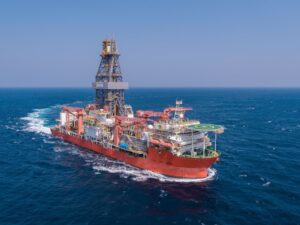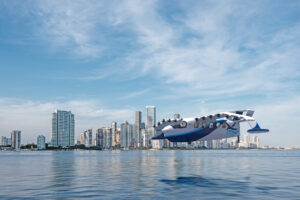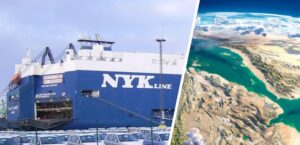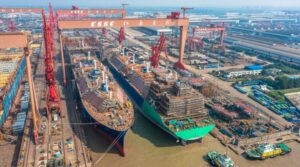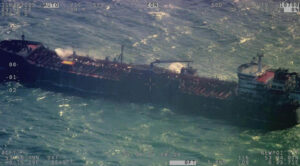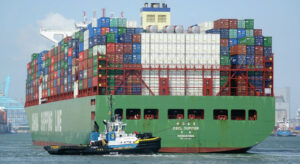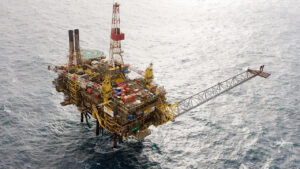How to get and keep a good crew
How do you keep your crew safe in times of COVID-19?

The need to take good care of crew members and travelling employees is getting increasingly more attention. Keeping employees healthy and safe is not only an employer’s responsibility, but it is also fundamental to attracting and retaining talent. The COVID-19 pandemic had an enormous impact on the economic situation in general, but the maritime and offshore sector have experienced special difficulties when it came to the safety of personnel. A crew’s health and safety have always been a top priority, but the potential spread of the virus created additional risks. Many employers have problems making crew changes due to strict travel restrictions. It takes considerable time and is occasionally impossible, with all the organisational challenges, risks and (mental) health issues it entails.
Concerning situations
The IMO (International Maritime Organisation) wants to draw attention to the position of seafarers when it comes to the COVID-19 crisis. While all eyes are on healthcare and curbing the virus, the situation for crews is concerning on several levels. Because employees cannot yet be vaccinated en masse, making a crew change becomes difficult and creates situations in which crew members sometimes have to stay on board a ship for much longer periods. This increases the risk of overstress with all the potential consequences it brings for their physical and mental health. This not only entails risks for the personal health and safety of the crew, but also the continuity and safety of the ship.
False declarations
Some situations became so dire that captains saw no option other than to make a false declaration about the health of their crew. In their ‘declaration of health’ (introduced since COVID-19) they claimed everyone on board was healthy so that they could moor, but an inspection subsequently revealed that there were still infected crew members. In such cases, an official report was drawn up and the country’s Public Prosecution Service brought in to deal with it, which could result in a fine or even criminal prosecution. During the past year, partly because of these checks, employers tended to fully comply with regard to on-board procedures, not least because the legal ramifications can be highly complex when taking into account national and international maritime law.
Searching for solutions
The world is highly dependent on shipping, which is responsible for transporting 80% of the total trade volume. There is therefore a strong case for crew members to be given priority in vaccinations, so that crew changes can be made more safely. The IMO is lobbying for this and there are already a number of countries which have adopted it in their vaccination policy. Another example of a possible solution to facilitate a safe crew change is the airlift which was built in the port of Rotterdam in collaboration with KLM. These kinds of solutions help relieve hopeless situations in which crews have sometimes been stuck for months.
Privacy is also a complex issue
Testing personnel for the coronavirus can relieve dire situations, but it also raises complex privacy issues. The Dutch Data Protection Authority has formulated precise limitations of what is or is not permitted when investigating whether someone is infected. For example, it is not legally permitted to measure and record an employee’s temperature. The same applies to the performing of quick tests. One solution is to get an employee to give permission, but legally binding permission is subject to strict requirements. Internationally, it is striking how differently regulators of various EEA countries view privacy legislation with regard to COVID-19. International organisations must therefore be aware of the differences which exist in each country. The risk is high since a (lead) supervisor can, for example, impose extra high fines if medical data is recorded in violation of that country’s legal standards.
Attention to personnel risks
In these challenging times, paying attention to your employees’ safety and welfare can make all the difference and ensure that you remain an attractive employer. Maritime employers are also more interested in insurance for the families of crew members so that, when at sea, they know that their family members have access to quality healthcare if they need it. So, at present, insurability for personnel risks remains good. However, with business risks – such as liability around COVID-19 and repatriation or travel to risk areas – the hard insurance market makes finding coverage for all risks increasingly challenging. To get the best premiums and conditions out of the market, it is always advisable to pay attention to your risk profile so that you can see any changes in time.
Questions?
As a company specialising in marine risk management and insurance broking the company Aon has a lot of experience when it comes to the safety of the crew.
Do you have any questions about the risks surrounding the issue of your crew’s safety? Or perhaps you would like more information on how we can further improve your risk profile or help you become an even more attractive employer? Then please contact Aon’s specialised advisors. With their extensive experience in maritime and offshore risks, they would be delighted to help you.
For more information go to Aon
https://www.aon.com/netherlands/sector/marine/crew-risk.jsp
Note: The opinions, beliefs, and viewpoints expressed in this article do not necessarily reflect the opinions of Offshore-Energy.biz

